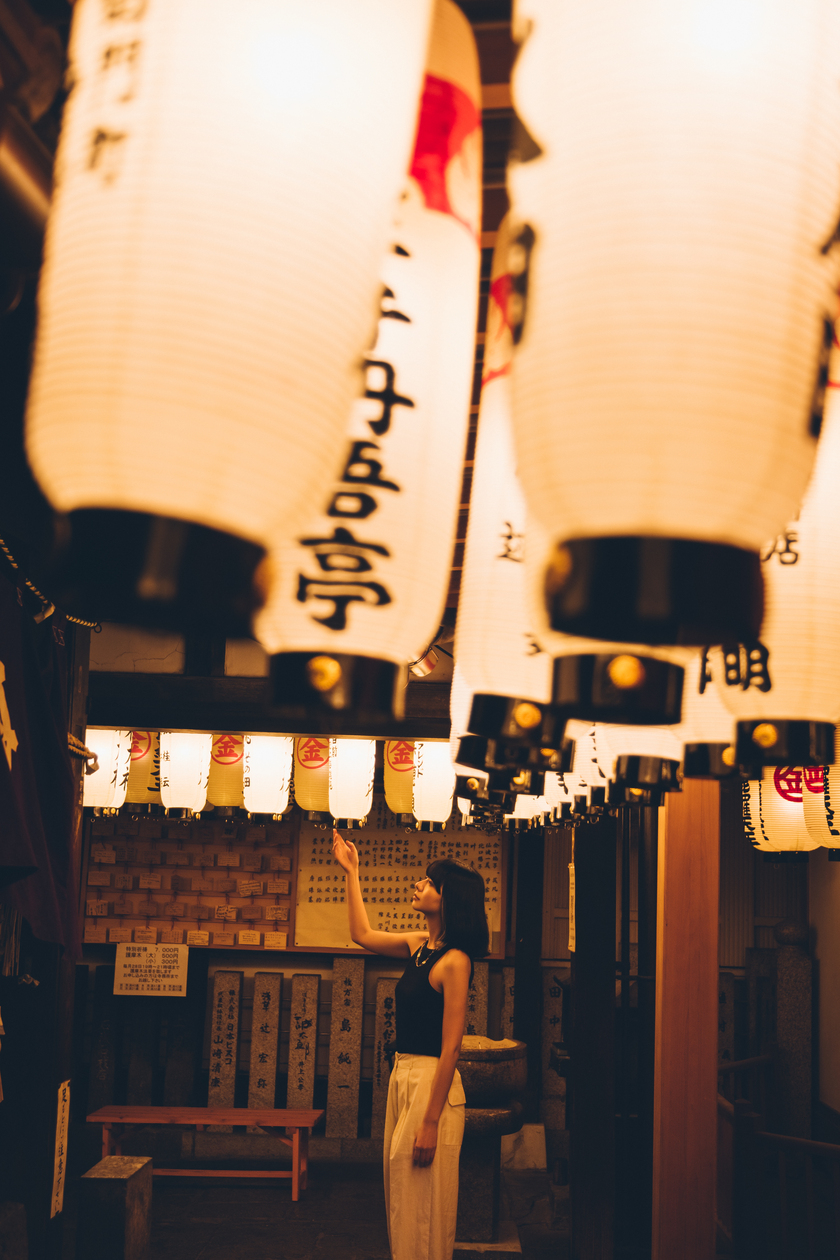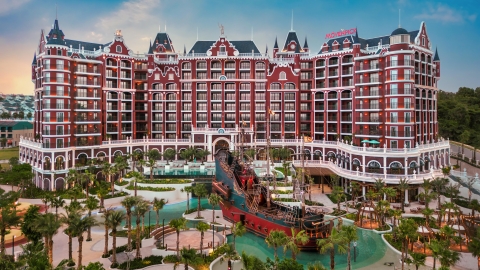A survey by Marriott International in the Asia Pacific region reveals that young travelers who previously favored high-end travel experiences in Asia Pacific are now creating a trend of traveling closer to home instead of choosing very distant destinations.
A regional survey conducted by global luxury hotel group Marriott International has coined a term to describe a new generation of travelers who will break existing boundaries in travel habits in the coming years. “Native Explorers” notes that high-income Millennium and Gen Z travelers in Asia Pacific are going against the grain, creating new travel trends that are the reverse of those of previous generations.
While their predecessors may have saved for longer, more expensive trips later, National Native Explores notes that the age of travel is getting younger, with over a quarter of them having traveled to at least two continents outside the Asia-Pacific region by the age of 26. Native Explorers also states that these individuals indicate they will spend money on travel closer to home for at least the next two years, as 85% of respondents believe they have yet to explore all the new destinations in their immediate vicinity.

More than two-thirds of Millennials and Gen Z travelers in the Asia Pacific region are choosing to travel closer to home rather than taking long trips.
This survey was conducted extensively across Australia, China, Japan, India, Singapore, and South Korea to better understand the attitudes of wealthy Millennials and Gen Z travelers, and to help luxury brands better meet their evolving aspirations.
With a growing trend toward holidays closer to home, Native Explorers ranked Japan (52%), South Korea (42%), and New Zealand (39%) as the top three preferred travel destinations. A significant number of survey participants were also seeking familiar destinations like Australia (39%) and Thailand (32%) through a culture-centric lens. While one in four locals preferred to overcome jet lag and opt for nearby, quiet holidays, their sense of adventure shouldn't be underestimated: 43% sought wellness and rejuvenating experiences in nature, and 36% were looking for hidden cultural gems yet to be discovered.
“Globally, we are witnessing an undeniable shift in travelers toward unique, more meaningful experiences in both new and familiar destinations. This is particularly evident in Asia Pacific from our findings on travel patterns and behavior among Generation Z and Millennials,” commented Bart Buiring, Head of Business & Marketing, Marriott International Asia Pacific.
To create captivating holidays and culturally rich journeys that cater to this emerging trend, we are expanding our luxury branded hotels in the region's most sought-after destinations such as Nara, Sydney, and Jiuzhaigou in China, aiming to open 12 hotels in 2023.
Luxury travel is defined by authentic connections and experiences, with handcrafted activities remaining key to unlocking truly exceptional journeys.
Native Explorers also redefined the meaning of luxury travel, encompassing everything from elusive and exclusive travel trends to connected and meaningful experiences. As they turned to authentic and sophisticated vacations, one in three respondents (37%) stated that human connection, genuine hospitality, and being part of a community were key components of luxury travel.

Young people in the Asia-Pacific region are choosing nearby travel over long-distance trips.
A majority of survey participants (58%) believe that once-in-a-lifetime experiences and unforgettable moments define a luxury travel experience. Top choices included VIP access to sold-out concerts by their favorite artists (52%) and exclusive culinary workshops with renowned chefs (36%). Marriott Bonvoy Moments, a program created specifically for Marriott Bonvoy members that allows them to use points earned from travel and daily activities to bid on exclusive packages, fulfills this desire by offering once-in-a-lifetime experiences, from access to the one-of-a-kind Mercedes-AMG PETRONAS F1 to the chance to attend private sessions with famous chefs and artists.
Craftsmanship remains crucial to luxury travel, with over 50% believing that excellent service and state-of-the-art facilities are key principles. Personalization remains a major deciding factor in choosing a luxury hotel, with 32% expecting pre-booked services such as personalized travel advice and 32% preferring hotels that offer tailored itineraries and customized amenities. A prime example is the recently launched Ritz-Carlton Club experience, immersing guests in a world of personalized luxury experiences. From pre-arrival to pre-departure, the Ritz-Carlton Club experience is available across all Ritz-Carlton hotels in Asia Pacific, where guests will find unique passions, curated culinary journeys, and personalized encounters to create meaningful moments.
Explore destinations through luxurious and comfortable hotel amenities.
Caught between the desire to explore and the desire to enjoy, surprisingly, nine out of ten respondents preferred exploring a destination with the assistance of their upscale hotel rather than researching on their own and hiring a local guide. Nearly half (45%) preferred sampling local cuisine through the hotel's gourmet restaurant, 39% wanted to experience local culture through a curated program offered by the hotel, and 34% wanted to try local wellness programs available at the hotel's spa.
Native Explores also points out that travelers enjoy having more time to explore the culture at their destinations, with a majority (76%) of respondents choosing hotels and resorts with unique designs inspired by local culture. Native Explores also confirms that brand relationships remain key for about one-third of travelers, and they often choose destinations inspired by an established luxury brand. For example, W Hotels' design approach takes a thoughtful approach through the lens of both the brand and the location at each destination, and therefore, no two W hotels look alike.
Marriott International's luxury hotel brand is ready to meet the needs of travelers.
Marriott International's luxury hotel brand is poised to meet travel desires with the recent opening of a series of hotels inspired by the modern traveler. The brand also plans to bring eight dynamic luxury brands to the region's most popular destinations, such as Sydney and Bangkok, as well as emerging destinations like Fukuoka, Japan, and Jiuzhaigou, China, in the near future.
As a world-leading luxury hotel group, Marriott International currently operates nearly 500 luxury hotels and resorts in 68 countries and territories, including 159 existing hotels in Asia Pacific. This region accounts for half of the company's global expansion, with nearly 200 luxury hotels and resorts.
The above results were obtained from a survey commissioned by Marriott International in June 2023 of 601 wealthy Gen Z (18-24 years old) and Millennials (25-41 years old) based in Australia, China, Japan, India, Singapore, and South Korea, who would spend more than $3,000 on a vacation.
The term "Native Explorers" refers to elite Gen Z and Millennial travelers with a desire for intrinsic exploration, who traveled the world when they were young and are now seeking destinations within their native regions.

 VI
VI EN
EN


































